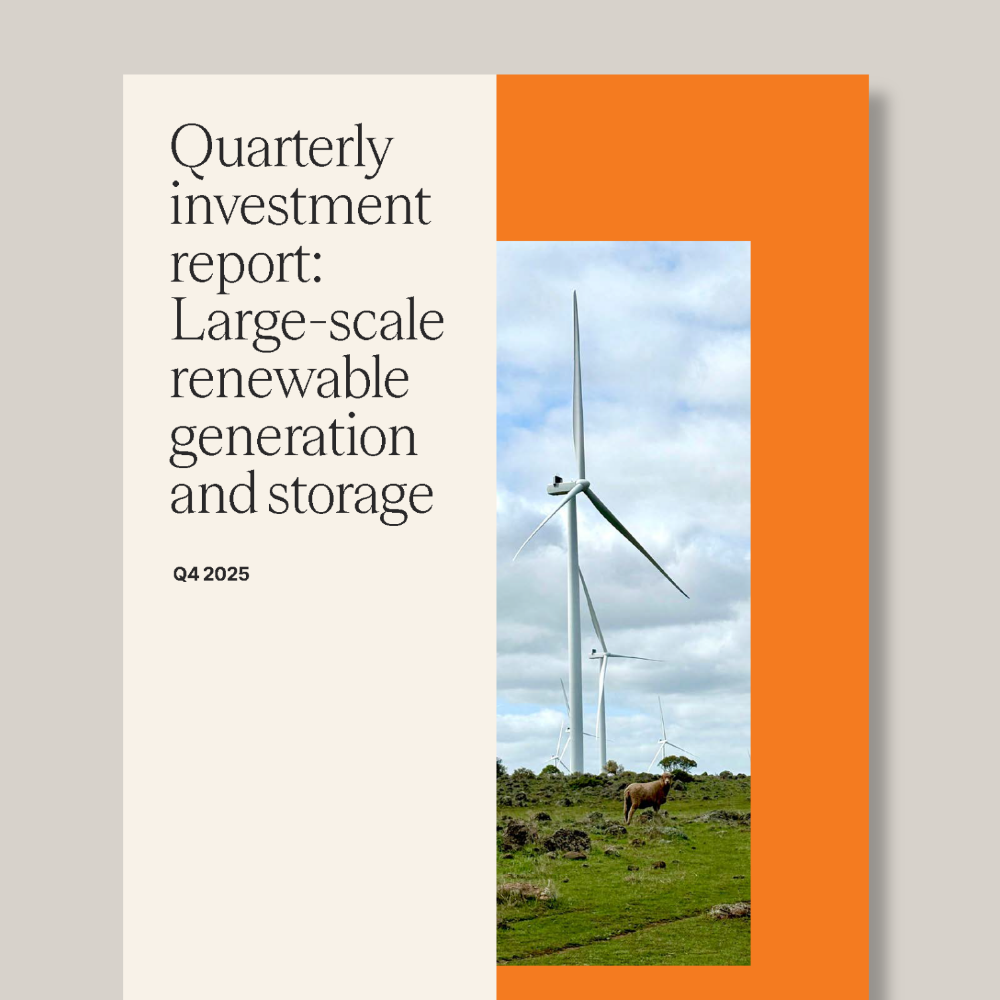A new initiative announced today will tackle modern slavery risks in NSW's renewable energy value-chains, amid growing evidence of forced labour in the production of integral components such as polysilicon used in most solar panels and cobalt used in lithium-ion batteries.
In an Australian first, the NSW Anti-slavery Commissioner Dr James Cockayne is joining forces with the Clean Energy Council to develop a Code of Practice on managing modern slavery risks in renewable energy value-chains.
“The transition to renewable energy must be a just transition”, said Dr Cockayne, announcing the initiative in Sydney.
“Slavery cannot be the price of decarbonisation.”
Dr Cockayne continued: “Without clarity on how to effectively manage modern slavery risks in renewable energy value-chains, both people and investments in renewable energy infrastructure may be at risk. We aim to produce a Code of Practice that offers protections and greater certainty to taxpayers, investors, renewable energy companies, and workers.”
The Code will be developed in collaboration with the Clean Energy Council, with the support of law firm Norton Rose Fulbright, and with industry, government, civil society, unions, and members of the public having an opportunity to provide feedback through a transparent consultation process.
The Commissioner will issue the Code of Practice using his statutory power under the Modern Slavery Act 2018 (NSW).
Dr Cockayne noted that in the United States in 2022, more than 2 gigawatts of imported solar panels were detained at the point of entry, on the basis that they contained components made with forced labour.
And late last year in Australia, planning approval for a renewable energy project in southern NSW was made conditional on certification that the products being installed met defined anti-slavery standards.
These have revealed that there is a lack of clarity regarding market and regulatory expectations.
Dr Cockayne and the Clean Energy Council launched the initiative along with a Discussion Paper, explaining the case for a Code of Practice and setting out how it will be developed and implemented.
After a period of consultation between the Office of the NSW Anti-slavery Commissioner and the Clean Energy Council, the peak body for the clean energy industry in Australia, a draft Code will be published in December 2023. Anyone may comment on the draft until February 2024, after which the Code will be finalised and released around March 2024.
The Office of the Anti-slavery Commissioner and the Clean Energy Council anticipate further cooperation in 2024 to encourage implementation of the Code, including through development of Implementation Guides explaining how the Code will operate in specific sectors of the renewable energy industry.
“We are delighted to work with the NSW Anti-slavery Commissioner to develop this important risk management framework”, said Clean Energy Council Chief Executive Kane Thornton.
“A clean energy future is one that effectively manages human rights challenges.”
The Anti-slavery Commissioner also anticipates recommending that NSW government and local council entities abide by the Code to satisfy their legal obligation to take reasonable steps not to buy goods or services made with modern slavery.
More than 400 public bodies in NSW, including government departments and local councils, have had this legal obligation since 1 July 2022.
Dr Cockayne said that the Code of Practice will align with the regulatory context in NSW, and Australia’s existing international commitments and obligations, notably under relevant International Labour Organisation Conventions, the UN Guiding Principles on Business and Human Rights, and relevant OECD Guidelines and guidance.
Today also marks the public release of the Clean Energy Council’s Pledge Against Modern Slavery.
The Pledge aims to drive greater awareness across the industry of modern slavery risks and to demonstrate a commitment to action.
“We are pleased that our Pledge Against Modern Slavery has already been signed onto by a wide range of industry participants, including wind and solar project developers, manufacturers and network businesses,” said Mr Thornton.
"The development of the Code of Practice will be an important next step in helping industry put into practice the commitments made under the Pledge.”
ENDS
For more information or to arrange an interview, contact:
Liam Straughan
Clean Energy Council Media Officer
+61 409 470 683





